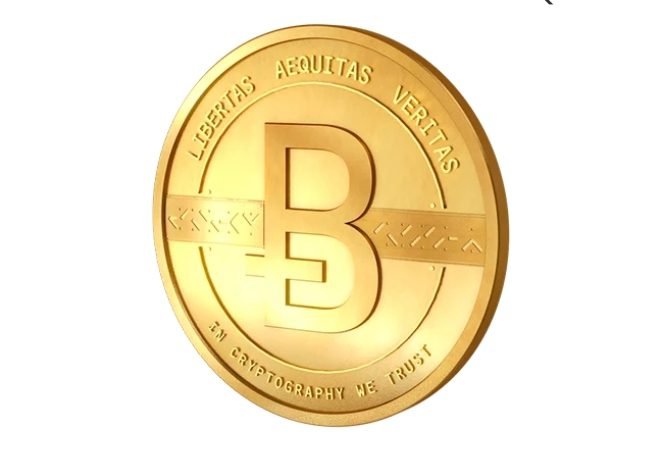Table of Contents
In the realm of finance and technology, Bitcoin stands as a revolutionary digital currency, capturing global attention with its decentralized structure and transformative potential in reshaping monetary paradigms. This comprehensive exploration of Bitcoin delves into its conceptual foundation, historical inception, and its pivotal role in contemporary finance. Immediate Core website can let you get started with investment education right away. Register, connect with an expert and start learning.

philosophy_of_bitcoin
Definition of Bitcoin
Bitcoin, often abbreviated as BTC, is a digital or cryptocurrency that exists purely in electronic form. Unlike traditional currencies issued by governments and central banks, Bitcoin is decentralized and operates on a peer-to-peer network. This means that it is not controlled by any single entity, making it immune to government manipulation or inflation.
Historical Background
The story of Bitcoin begins in 2008 when an individual or group using the pseudonym Satoshi Nakamoto published a whitepaper titled “Bitcoin: A Peer-to-Peer Electronic Cash System.” This whitepaper outlined the core principles and mechanics of Bitcoin, laying the foundation for its creation.
Significance of Bitcoin in the Modern Financial Landscape
Bitcoin has rapidly gained prominence as a digital alternative to traditional currencies. Its unique features, such as blockchain technology and decentralization, have made it a subject of interest for investors, tech enthusiasts, and even governments. Its potential impact on global finance cannot be overstated, as it challenges existing financial systems and opens up new possibilities for innovation.
What is Bitcoin?
The Concept of Digital Currency
At its core, Bitcoin is a form of digital currency that represents value. Unlike physical currencies, it doesn’t have a physical presence but is entirely digital. This means that it exists only in the form of data stored on computers and servers worldwide.
How Bitcoin Works
Blockchain Technology
The backbone of Bitcoin is the blockchain, a distributed ledger that records all transactions. Every transaction made with Bitcoin is added to a block, and these blocks are linked together chronologically to form a chain. This ledger is maintained by a network of nodes (computers) that validate and record transactions. This transparency and security make Bitcoin transactions immutable and tamper-resistant.
Decentralization
One of the most remarkable aspects of Bitcoin is its decentralization. Traditional currencies are centralized and controlled by governments and central banks. In contrast, Bitcoin operates on a decentralized network, with no single authority in control. This decentralization is a fundamental feature that contributes to Bitcoin’s resilience and censorship resistance.
Bitcoin vs. Traditional Currency
Bitcoin differs significantly from traditional currencies like the US dollar or the euro. Unlike these fiat currencies, Bitcoin is not backed by a physical commodity or government. Its value is determined by supply and demand dynamics, making it highly volatile compared to stable government-issued currencies.
The Birth of Bitcoin
Satoshi Nakamoto: The Enigmatic Creator
The identity of Bitcoin’s creator, Satoshi Nakamoto, remains a mystery. Nakamoto’s whitepaper and initial code release laid the groundwork for Bitcoin’s development. Despite numerous theories and claims, Nakamoto’s true identity remains unknown, adding an aura of intrigue to Bitcoin’s origins.
The Genesis Block
On January 3, 2009, Nakamoto mined the first-ever block of the Bitcoin blockchain, known as the “genesis block.” Embedded within it is a message that reads, “The Times 03/Jan/2009 Chancellor on brink of second bailout for banks.” This message is seen as a commentary on the financial system’s flaws and the reason for Bitcoin’s creation.
Early Adoption and Growth of Bitcoin
In its early days, Bitcoin had a niche following, with a small group of enthusiasts and early adopters experimenting with the digital currency. Over time, its popularity grew as more individuals recognized its potential as an alternative investment and means of transacting value.
How to Acquire Bitcoin
Buying Bitcoin
Cryptocurrency Exchanges
The most common way to acquire Bitcoin is through cryptocurrency exchanges. These online platforms allow users to buy, sell, and trade Bitcoin using fiat currency or other cryptocurrencies. Popular exchanges include Coinbase, Binance, and Kraken.
Peer-to-Peer Transactions
Another method of obtaining Bitcoin is through peer-to-peer transactions. Platforms like LocalBitcoins and Paxful connect buyers and sellers directly, facilitating transactions without the need for intermediaries.
Mining Bitcoin
Mining Hardware and Software
Bitcoin mining involves using specialized computer hardware and software to solve complex mathematical puzzles. Miners compete to validate transactions and add them to the blockchain. Successful miners are rewarded with newly created Bitcoin and transaction fees. However, mining has become highly competitive, requiring substantial computing power and energy resources.
Mining Pools
Individual miners often join mining pools to increase their chances of earning rewards. In a mining pool, participants combine their computational resources and share the rewards based on their contributions.
Storing and Managing Bitcoin
Bitcoin Wallets
Bitcoin wallets are essential tools for storing and managing your Bitcoin holdings. There are several types of wallets:
- Hardware Wallets: These are physical devices that store your Bitcoin offline, providing a high level of security.
- Software Wallets: Software wallets are applications or programs installed on your computer or mobile device for storing Bitcoin. They come in various forms, including desktop, mobile, and web wallets.
- Paper Wallets: A paper wallet is a physical document containing your Bitcoin address and private key. It’s considered one of the most secure methods of storing Bitcoin.
Transactions and Addresses
Bitcoin transactions involve sending Bitcoin from one address to another. Each address is a unique identifier associated with a Bitcoin wallet. It’s crucial to verify addresses and confirm transactions before sending or receiving Bitcoin to prevent errors.
Private Keys and Public Keys
Private keys are the cryptographic keys that grant access to your Bitcoin holdings. They must be kept secure and confidential. Public keys are shared with others to receive Bitcoin and are derived from your private key.
Bitcoin as an Investment
Bitcoin’s Price History
Bitcoin’s price has experienced significant fluctuations since its inception. It started with virtually no value and, over the years, has reached new highs and experienced sharp corrections. Understanding Bitcoin’s price history is essential for investors.
Investment Strategies
Investors approach Bitcoin in various ways, including long-term holding (HODLing), day trading, and diversification strategies. Each approach carries its own risk and potential reward, and investors should carefully consider their goals and risk tolerance.
Risks and Volatility
Bitcoin’s volatility is one of its defining characteristics. While it presents opportunities for profit, it also carries the risk of substantial losses. Investors should be aware of the risks associated with Bitcoin and exercise caution.
Bitcoin in the Real World
Bitcoin and the Economy
Bitcoin’s impact on the global economy is a subject of ongoing debate. Some see it as a store of value and hedge against inflation, while others view it as a speculative asset. Its potential role in reshaping traditional financial systems remains a topic of discussion.
Bitcoin for Online and Offline Transactions
Bitcoin can be used for a wide range of transactions, both online and offline. It offers benefits such as lower transaction fees and faster cross-border transfers. Some businesses and individuals have adopted Bitcoin as a payment method.
Regulatory Challenges and Legal Implications
The regulatory environment for Bitcoin varies from country to country. Some nations have embraced it, while others have imposed restrictions or outright bans. Understanding the legal and regulatory landscape is essential for Bitcoin users and investors.
The Future of Bitcoin
Technological Developments
Bitcoin’s future development includes improvements to its scalability and efficiency. The Lightning Network, for example, aims to enhance transaction speed and reduce costs, making Bitcoin more practical for everyday transactions.
Adoption and Acceptance
As Bitcoin continues to gain acceptance, more businesses and individuals may integrate it into their financial activities. Increased adoption could further solidify Bitcoin’s position in the financial ecosystem.
Potential Impact on Traditional Finance
The rise of Bitcoin has prompted traditional financial institutions to explore digital currencies and blockchain technology. Bitcoin’s influence on the financial sector may lead to innovations in banking and finance.
Conclusion
In conclusion, Bitcoin represents a transformative force in the world of finance and technology. Its decentralized nature, underlying blockchain technology, and potential for reshaping the financial landscape make it a subject of significant interest. While Bitcoin offers opportunities for investment and innovation, it also comes with risks and regulatory challenges. Understanding its fundamentals and implications is essential for anyone looking to begin their journey with Bitcoin. As you embark on your exploration of this digital frontier, remember the principles of security, responsibility, and ongoing education in the dynamic world of cryptocurrency.

